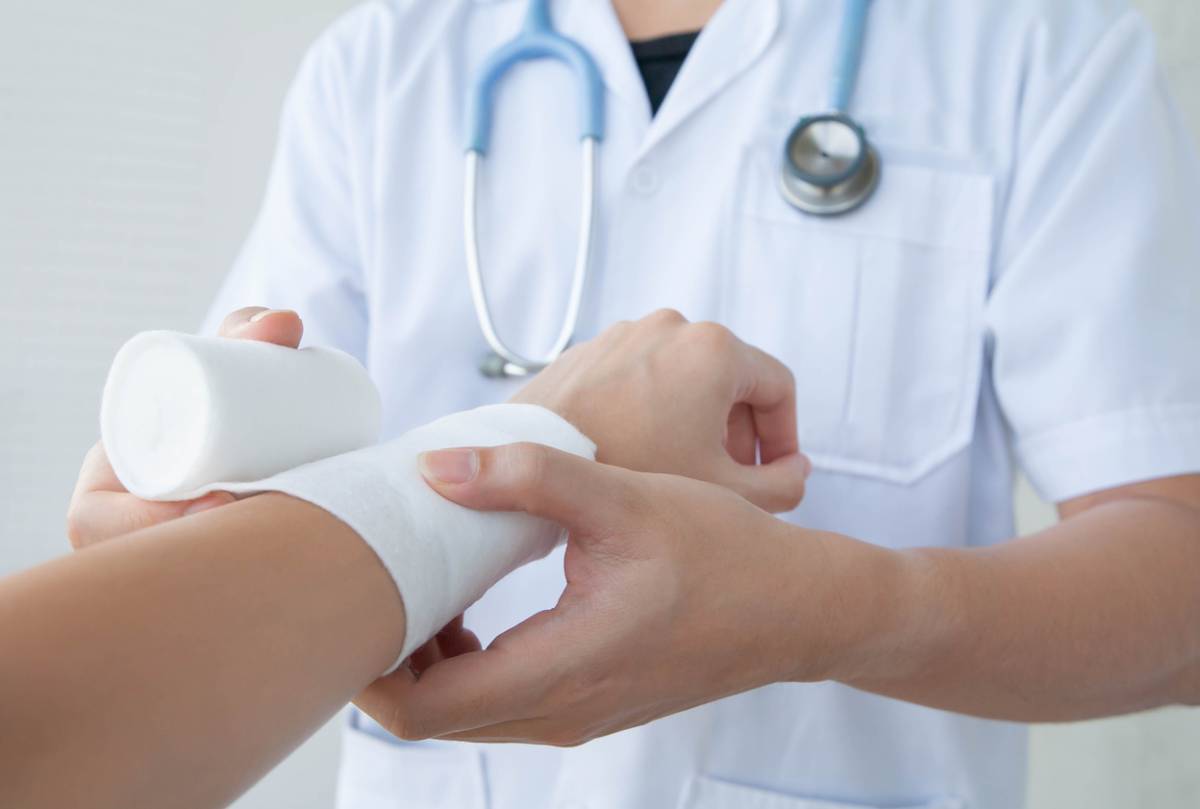Wounds can happen to anyone so it’s important to be prepared. Whether you fall, get into an accident, or even have a spill at work, it is important to take care of the wound right away. Depending on the severity, you may be able to take care of the wound yourself. However, there are certain instances where you should seek help from a medical professional. Below you will find the importance of sanitizing a wound, and when you should call a medical professional for support.
Importance of Sanitizing a Wound
An open wound often involves an external break in your skin. While open wounds are very common, some are much worse than others. It is important to sanitize your wound as there are a number of complications that can occur if you don’t. The most serious complication of an open wound is an infection. An infection can be extremely serious and result in major medical issues. Some of the most common signs of an infection include an increase in drainage, pus coming from the wound with a foul odor, or thick green, yellow, or brown pus. You may also get a high fever or a tender lump in your groin or armpit. If you experience any of these issues you should contact a medical professional immediately.
When to Seek Medical Attention
The most serious risk associated with an open wound is an infection. However, there are some cases where you may need to see a doctor immediately after injury. Some open wounds require medical care and you should not take care of it at home. If you have an open wound that is deeper than one-half of an inch, or if the bleeding is the result of a serious accident you should seek medical attention. If the bleeding doesn’t stop after applying direct pressure or after 20 minutes have passed, you should also contact a medical professional. These are serious cases and cannot be treated at home.
Wound Care Steps
If you or someone you know gets an open wound, it is necessary to sanitize it as soon as possible. For wounds that can be taken care of at home, consider the following steps.
- Clean Your Hands: Clean your hands by washing them with hot, soapy water. If you cannot wash your hands, use hand sanitizer. If you have gloves, you should use them as you care for the wound.
- Apply Pressure: This doesn’t apply to all wounds, so use caution. If the wound is not bleeding or is a burn, skip this step. If the wound is still bleeding, apply pressure by using a cloth or gauze over the wound. Apply pressure until the bleeding stops, but pay close attention to the tips above for when to seek medical attention.
- Rinse the Wound: Once the bleeding has stopped, rinse the wound. You can use water to remove any dirt or debris. Be very gentle as this can be painful.
- Apply a Cream or Ointment: One of the most important steps when it comes to wound care in Seattle is to apply an antibiotic cream or ointment. This helps keep the skin moist and wards off infection. Use caution when applying the cream as some people may be allergic to certain ingredients. Visit an apothecary in Seattle to ensure that the ointment is right for you.
- Apply a Bandage: You may not need to apply a bandage to every open wound. If the injury is minor, you likely don’t need a bandage. However, use caution to ensure it stays clean. If the wound is more than surface level, use a bandage and change it daily.
